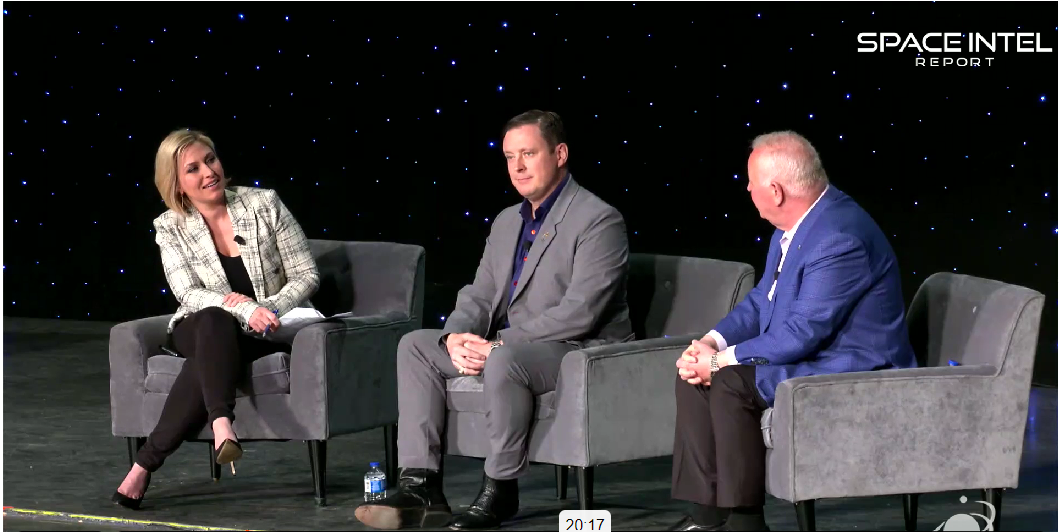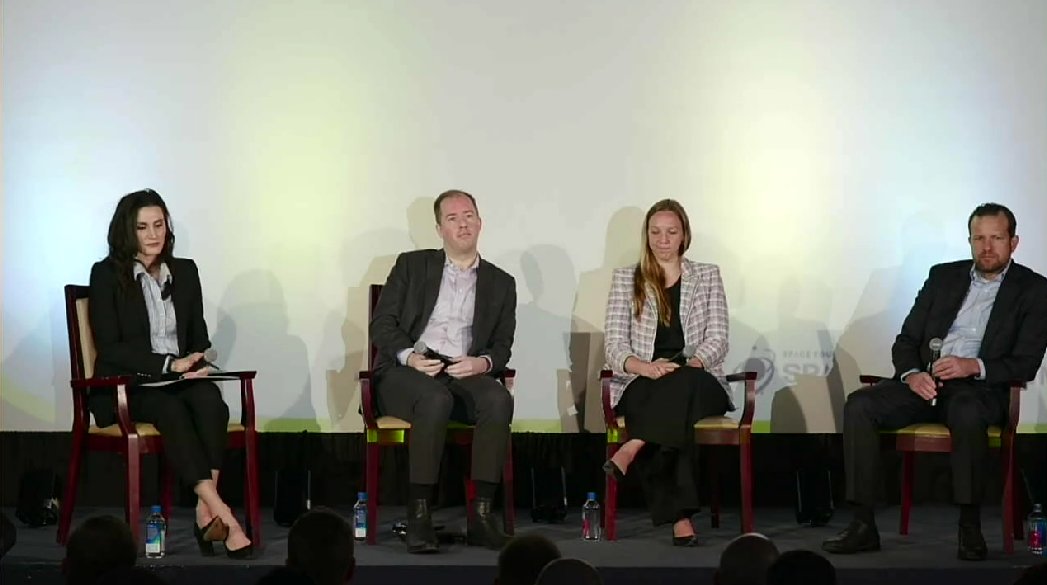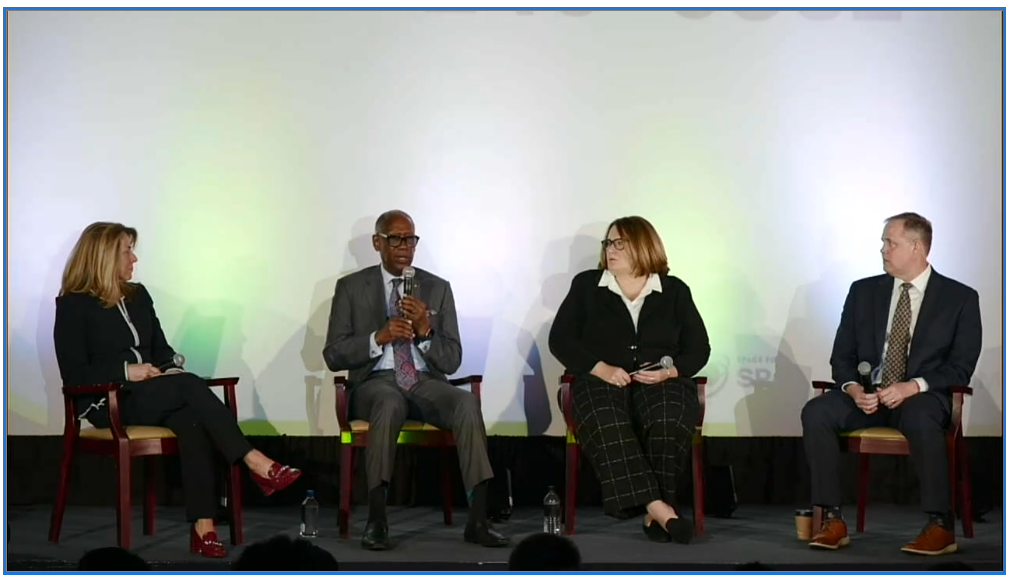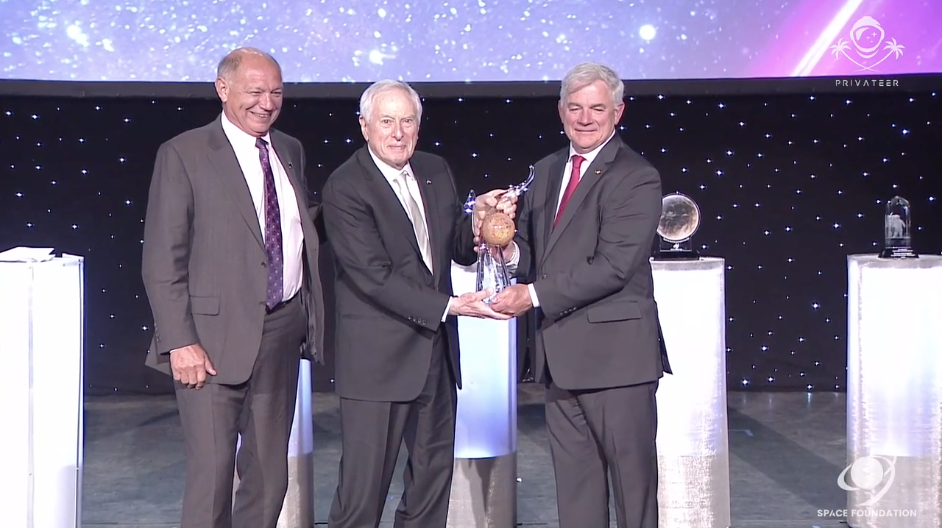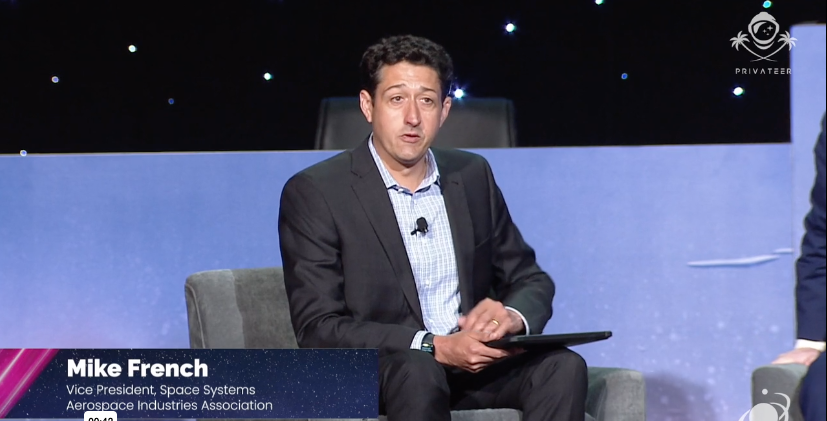First Guardian to head for orbit wants more Space Force astronauts
Originally aired on: April 1, 2024
As the Space Force approaches its fifth birthday, the service will launch its first Guardian astronaut to orbit when Col. Nick Hague rockets to space in August for a planned six-month stint aboard the International Space Station.
Hague, a 1998 Air Force Academy graduate, entered NASA’s astronaut program as an airman and had just returned from a 203-day mission aboard the ISS when the Space Force was created in 2019. He was one of the early officers who joined the Space Force and took a break from his NASA duties to help establish the new service’s test and evaluation program. Ahead of his next launch, Hague is working to show Guardians how their strict standards and attention to detail make human spaceflight possible and “directly support the success” of space exploration.
“The second thing I hope they see is I hope they see themselves, I want to see more Guardians apply to the space program,” Hague said during a visit to Peterson Space Force Base in Colorado. Hague visited several Space Force installations in Colorado, talking to Guardians about how their support will keep the station’s crew safe.
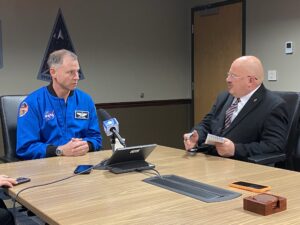
U.S. Space Force Col. Nick Hague, expected to become the first Guardian astronaut in space, talks with Space Foundation Senior Analyst Tom Roeder during a recent visit to Colorado Space Force bases. (Photo by Mayo Davidson/Space Foundation)
Hague also visited Sierra Space outside Denver to train with the firm’s Dream Chaser spacecraft, which is planned to make its maiden cargo flight to the ISS this year. Dream Chaser, a reusable craft similar to the Space Force’s X-37B pilotless spacecraft, is the first commercial winged spacecraft that can land on conventional runways. Hague worked with Sierra engineers to map out how the new spacecraft will dock with the station and learn how to properly load and unload its cargo.
New spacecraft experiences
Hague will fly to the ISS in a SpaceX Crew Dragon capsule atop a Falcon-9 launch vehicle. His prior experience was aboard Russian-built Soyuz capsules, including an aborted launch attempt in 2018 caused by a booster malfunction that sent his spacecraft tumbling before the crew activated an emergency escape system. The Crew Dragon’s automated systems are a big shift from the manual switches and controls used to pilot the Soyuz, Hague said.
While he admires the new American-built spacecraft, Hague is a big fan of the multinational cooperation that made the International Space Station a global asset.
Much of the colonel’s planned mission to the station will test technology for a new generation of commercial space stations expected to launch for low Earth orbit in the next decade. Hague will also help conduct a variety of science experiments in subjects from physics to medicine.
Hague will fly to the station with NASA astronauts Zena Cardman and Stephanie Wilson. They also visited Peterson and Schriever Space Force Base. The Americans will be accompanied by Russian cosmonaut Aleksandr Gorbunov.
More from Space Force at the 39th Space Symposium
Want more insight from the U.S. Space Force? The 39th Space Symposium offers several sessions that are available on live stream through virtual registration. Registration is free for all active-duty military and deeply discounted for government registrants.
RELATED VIDEOS
MOST RECENT VIDEOS
Symposium Highlights
Late Breaking News: Intuitive Machines Live from Space Symposium 2024
Originally aired on: April 11, 2024
Space Investment Analysis
Symposium Highlights
Space Investment Analysis: Live from the 2024 Space Symposium
Originally aired on: April 8, 2024
Space Matters
Symposium Highlights
Space Matters: Live from the 2024 Space Symposium
Originally aired on: April 8, 2024
